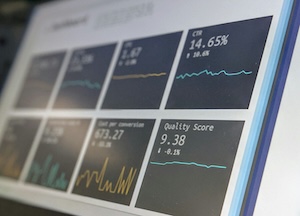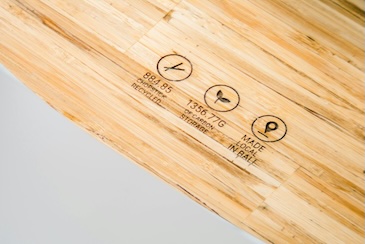Small teams are often tasked with doing more with less—limited budgets, fewer staff, and tight timelines can make it challenging to keep up with larger organizations. This is especially true in sustainability, where Life Cycle Assessments (LCAs) require significant amounts of data, analysis, and reporting.
But thanks to artificial intelligence (AI), lean teams can now deliver outsized results. By automating workflows, improving accuracy, and accelerating insights, AI is transforming how LCAs are conducted, making it possible for small teams to compete with enterprise-level sustainability efforts.
Why Life Cycle Assessments (LCAs) Are Critical for Sustainability
Life Cycle Assessments provide a scientific framework for evaluating the environmental impacts of products, processes, and services. From raw material extraction to product disposal, LCAs help organizations measure carbon footprints, identify hotspots, and design more sustainable solutions.
For small businesses, LCAs are not only a tool for compliance—they’re also a strategic advantage. They demonstrate transparency, attract eco-conscious customers, and support climate action goals. The challenge is that LCAs have historically been resource-intensive, requiring time and money that isn’t feasible for smaller teams. That’s where AI comes in.
AI-Powered Carbon Footprint Modeling and Reporting
Automated Data Collection
AI streamlines one the most time-consuming parts of an LCA: gathering supply chain and material data. Instead of manually requesting and cleaning spreadsheets, small teams can use AI to pull, validate, and structure data automatically. Advanced algorithms can also estimate or fill in missing data when suppliers can’t provide complete information, improving both efficiency and accuracy.
Enhanced Decision-Making
With AI-driven analytics, sustainability professionals gain actionable, real-time insights into environmental impacts. For example, teams can simulate the carbon impact of switching from virgin to recycled materials or compare the footprint of different suppliers before making procurement decisions. This scenario modeling empowers lean teams to make better, faster sustainability choices.
Faster, More Accurate Modeling
Traditional LCA modeling can take weeks, but AI reduces the process to hours—or even minutes—by processing massive datasets and running complex calculations automatically. This not only speeds up delivery but also reduces human error, giving stakeholders more confidence in the results.
Scalable Customer & Stakeholder Reporting
Communicating results is just as important as calculating them. AI-powered platforms can generate audit-ready LCA and carbon reports such as Environmental Product Declarations (EPDs) that align with regulatory standards or can be tailored for customers, investors, or internal teams. This eliminates the need for small organizations to hire separate reporting specialists while ensuring outputs are clear and professional.
Expanding Creative Capacity
AI doesn’t just crunch numbers—it also helps with storytelling. Teams can use AI tools to draft website copy, sustainability updates, and marketing campaigns that highlight LCA results in accessible, engaging language. This ensures that impact data isn’t buried in technical jargon but instead connects with customers and stakeholders.
Achieving Sustainability Certifications with AI Tools
Imagine a Product Brand with only five employees. By integrating AI-powered LCA tools, they can gather data, model impacts, test scenarios, and generate polished reports at the same level as a multinational corporation. Instead of being limited by headcount, they can focus on innovation, customer engagement, and long-term sustainability strategy.
Achieving Product Certifications and Differentiation Smaller teams can leverage AI-driven LCAs to pursue recognized sustainability certifications, giving them a competitive edge over larger players. Certifications such as Amazon Climate Pledge Friendly, Cradle to Cradle, BIFMA LEVEL, and Living Product Challenge validate environmental leadership. Achieving these certifications allows small teams to differentiate their products, attract eco-conscious consumers, and demonstrate a tangible ROI through increased sales, brand value, and market opportunities.
Why Now Is the Time to Act
CarbonBright’s AI-powered LCA platform gives small sustainability teams the ability to deliver results that once required entire departments. By automating data collection, accelerating modeling, and simplifying reporting, CarbonBright helps organizations complete LCAs faster, more accurately, and at a fraction of the traditional cost.
Next Steps: Scaling Your LCAs with CarbonBright
CarbonBright’s AI-powered LCA platform gives small sustainability teams the ability to deliver results that once required entire departments. By automating data collection, accelerating modeling, and simplifying reporting, CarbonBright helps organizations complete LCAs faster, more accurately, and at a fraction of the traditional cost.
AI-Powered LCA FAQs for Small Sustainability Teams
Q: What is an AI-powered LCA?
A: An AI-powered Life Cycle Assessment uses machine learning to automate data collection, supplier mapping, impact modeling, and reporting—aligned with ISO 14040/44 and the GHG Protocol Product Standard. CarbonBright ingests SKU/BOM/spend data, fills gaps with vetted datasets, and generates cradle-to-gate/-grave, audit-ready results in days, meeting rising buyer and regulatory expectations.
Q: How can small teams benefit from AI in sustainability?
A: Lean teams cut LCA time and cost while producing credible Scope 3 product footprints, hotspot analysis, and buyer-ready summaries. CarbonBright automates supplier outreach, validation, and structuring of messy spreadsheets, updating models as primary data arrives so small businesses can prioritize reductions and support sales without adding headcount.
Q: How do AI-powered LCAs support certifications and disclosures?
A: AI streamlines evidence for Environmental Product Declarations (EPDs) and programs like Cradle to Cradle, BIFMA LEVEL, and Living Product Challenge, and supports disclosures such as CDP and CSRD. CarbonBright provides traceable inventories, versioning, and exportable verification packs aligned to PCRs, helping reviewers move faster and reducing launch-threatening rework.
Q: Which standards and methodologies does CarbonBright align with?
A: CarbonBright aligns with a variety of standards including ISO 14040/44, the GHG Protocol Product Standard, and EPD program rules (per-program PCRs). Method packs are kept current; normalization/weighting and uncertainty handling are documented with full data lineage—reducing audit risk and preventing costly re-modeling as standards evolve.
Q: Why start using AI-powered LCAs now?
A: Product-level carbon data—especially Scope 3 purchased goods—has become a procurement and compliance requirement. CarbonBright enables small teams to deliver defensible, decision-grade LCAs in days, supporting supplier choices, material swaps, certifications, and claims—so you win deals now and stay ready for upcoming rules.




